| Zeitschrift Umělec 2006/2 >> Cabaret Voltaire | Übersicht aller Ausgaben | ||||||||||||
|
|||||||||||||
Cabaret VoltaireZeitschrift Umělec 2006/201.02.2006 Alena Boika | u-sobě | en cs |
|||||||||||||
|
Interactive Recycling and Mark Divo
Why Alternative Culture Is Being Eliminated in Zurich or Dear Swiss Artists, Welcome to Prague!!! While working on this issue I came across a glossy advertisement for Cabaret Voltaire Spiegelgasse 1, in Zurich and could not resist the temptation to write about it. Besides, I was going to do it anyway as I was impressed by the story told by Mark Divo, the protagonist. One day, the cult artist Mark Divo—well-known for many artistic achievements of all kinds, including for the number of squatted houses, the one who had organized the first squat in Zurich as it is rumored—decided to occupy a building Spiegelgasse 1 known as Cabaret Voltaire. Or, rather, as a place where Cabaret Voltaire used to be, where Dada developed their ideas and Lenin planned his biggest and most enthralling performance. On February 5, 2002, the day of Dada’s founding, the historic building was squatted by artists and musicians including the Mikry Drei, Dan Jones, Grrrr (Ingo Giezendanner), the famous Eppstein Family, Lennie Lee, the Leumund Cult, Aiana Calugar, and cheery young people led by Mark Divo. As a result of the event, a Cabaret Voltaire Museum was organized. As the press reported, Mark Divo wanted to attract attention to a crying injustice: the place significant for all Dadaists, Surrealists, their successors, and all more or less artistic people represented the abandoned old house in Zurich historic center. A nonstop happening lasted during several weeks, people came and left, made performances, played music, organized poetry and film evenings, and they all lived a very creative life all the while scandalizing and frightening some tourists and townspeople— and making others happy. Thousands of local people and guests joined the show. After that, Mark Divo, and people working with him were described as followers and successors of Cabaret Voltaire ideas, which Mark denies, saying that he only wanted to breathe new life into the old historic house. This is why he declined the offer to participate in the official structure of the museum. He considered the format a distortion of the very idea of Dada, for whom art and life are indivisible. Art is a means enabling changes in the world. The most important thing is to play brilliantly, vividly, funnily, and impetuously – this is what new owners of Cabaret Voltaire could not permit. Mark Divo continued his activities aimed to turn life into art. In 2003, he organized an international festival in Sihlpapierfabrik. The same year, a first official Dada Festival besides the already mentioned participants hosted many new visitors including Dmitry Bulnygin, Slava Mizin, and Alexander Shaburov - Mark Divo’s friends from the festival that he had organized in Russia. A Brief But Important Digression In 1995, Siberian artists V. Mizin, D. Bulnygin, A. Golzdrin, and O. Elovoi who were inspired by the ideas of the Eurocot group (translation: Euroshit) came to Zurich. Mark Divo, founder of Eurocot, proclaimed his artistic doctrine postindustrial neo baroque – producing works of art from the garbage of contemporary European civilization. Inspired by Eurocot, the artists decided to organize their own festival back home. In 1996, the far Russian city Novosibirsk, famous for scientific achievements, high number of academics per capita, with an accompaniment of talented artists, including the celebrated Blue Noses, hosted an international festival Ecological Art Bridge Eurokon-96 co-sponsored by the Swiss guests. The artists inventively developed the dumps of such enterprises as the Plant for Production of Secondary Aluminum Alloys, Rubber Technical Manufacture, Ceramic Works, and Ural Tyre Factory who had been captivated by the ecological phraseology of the project. After that, they declared themselves the Ural-Siberian affiliation of Eurocot having replaced the last letter by “n” for the better euphony. Interactive Recycling is a term used by Mark. Turning garbage into new works of art is a highly consistent process that includes the squatting of old houses, collecting discarded things when people move, expired merchandise near supermarkets, and Cabaret Voltaire, where they replayed Dada ideas as a striking demonstrative to breathe life in the historic garbage. One of most interesting places in Zurich, where Interactive Recycling ideas had been implemented as well as many others, was a squat on Plattenstrasse, in which many young Swiss and foreign artists gathered and inventively spent time. Mark Divo, who was born in Luxembourg, grew up in Zurich, went to Berlin, then moved to Prague, and is currently traveling from one country to another, is an apt illustration of the universality of the artistic idea, which he had invented and which works without failure in any country of the world. The same concerns his parties, which he regularly organizes in more and more new cities, even New York. It is always Thursday, 8 pm. It is always a very spacious room – apartments or studio – filled with different artists’ works that are not simply built into space but become a vivid and employed part of interior. It is always live music. Lately, it is classical music against the background of contemporary trash art. It is always many people who take pleasure in refined and delicate but still very accurate demonstrations of neo-baroque. It is the sense of style, which never fails even in details. Now this artistic festival of life is in Prague every Thursday. Why Squats Are Being Eliminated in Swiss Mark says that Prague is the most beautiful of places for artists now. It is not fully absorbed by European Union yet, and universal results of omniverous globalism are not so hopeless. In Switzerland, in Zurich, the main cultural center, the number of outstanding and crazy houses squatted by artistically-minded young people continues to decrease. Plattenstrasse was closed a couple of years ago, Jenatschstrasse is on the verge of eviction, Rudigerstrasse will exist for another couple of months. The Message Salon, invented by artist Esther Eppstein, united squat principles and manifestations, exhibition space, residence programs and commercial independence; it will most probably be closed in June. On the one hand, the state aims to support different arts, but it does not care for this undigested tumult of young creative people. Squats, the houses assigned for demolition, are also the garbage as well as people who settle them. They are a priori added if not to dregs of society then to not too successful margins. Many consider themselves artists irrespective of what they do; others say that the squat for them is just for fun, and why not, you know, here everything, and rent is too so expensive! Some of them are worn out and disappointed. A thoughtful young man from the squat on Jenatschstrasse, where I lived, said, “I used to make art – now this now that. One day, I suddenly understood that I cannot change the world with my art. That was so obvious that I cannot do anything since then.” For eight years, he has not slept by night, he strolls about the streets, he does nothing except for the most important thing – he seeks something that he can believe in and thus, change the world, which he does not like. To Play Mark is a person easily carried away who likes striking, beautiful and useless things, constructions and provocations. He does not like garbage bags throughout Zurich — as tidy as everything around they are the inevitable part of the landscape of any part of the city at any time of the day – he does not like their order. He prefers to destroy this cheerless rhythm of white-and-blue packs and to create toys for adult intellectuals. Garbage. The holy simplicity of sincere art. The protest is mediated—it is not the aim but the means and consequence. The most useless and most beautiful thing in the world is art, which just like garbage is despised by some and consumed by others. Interactive Recycling: play, play, play again. Only a game is entitled to exist. It is the only effective way to change the world if you do not like it.
01.02.2006
Empfohlene Artikel
|
|||||||||||||
|
04.02.2020 10:17
Letošní 50. ročník Art Basel přilákal celkem 93 000 návštěvníků a sběratelů z 80 zemí světa. 290 prémiových galerií představilo umělecká díla od počátku 20. století až po současnost. Hlavní sektor přehlídky, tradičně v prvním patře výstavního prostoru, představil 232 předních galerií z celého světa nabízející umění nejvyšší kvality. Veletrh ukázal vzestupný trend prodeje prostřednictvím galerií jak soukromým sbírkám, tak i institucím. Kromě hlavního veletrhu stály za návštěvu i ty přidružené: Volta, Liste a Photo Basel, k tomu doprovodné programy a výstavy v místních institucích, které kvalitou daleko přesahují hranice města tj. Kunsthalle Basel, Kunstmuseum, Tinguely muzeum nebo Fondation Beyeler.
|







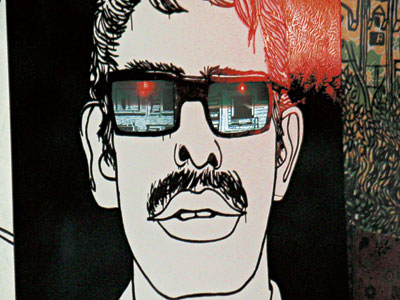
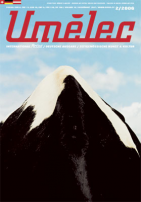








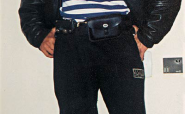
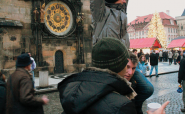
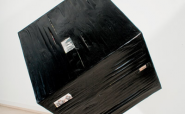
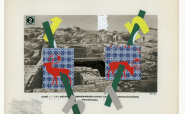
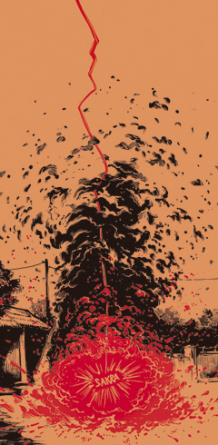






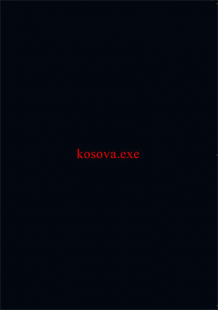




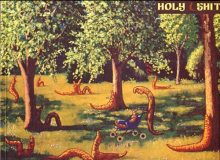
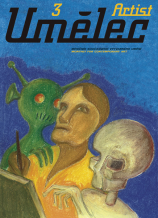
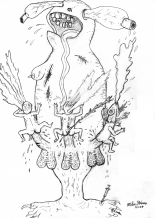
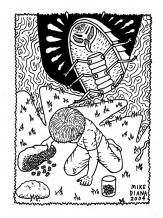


 New book by I.M.Jirous in English at our online bookshop.
New book by I.M.Jirous in English at our online bookshop.
Kommentar
Der Artikel ist bisher nicht kommentiert wordenNeuen Kommentar einfügen